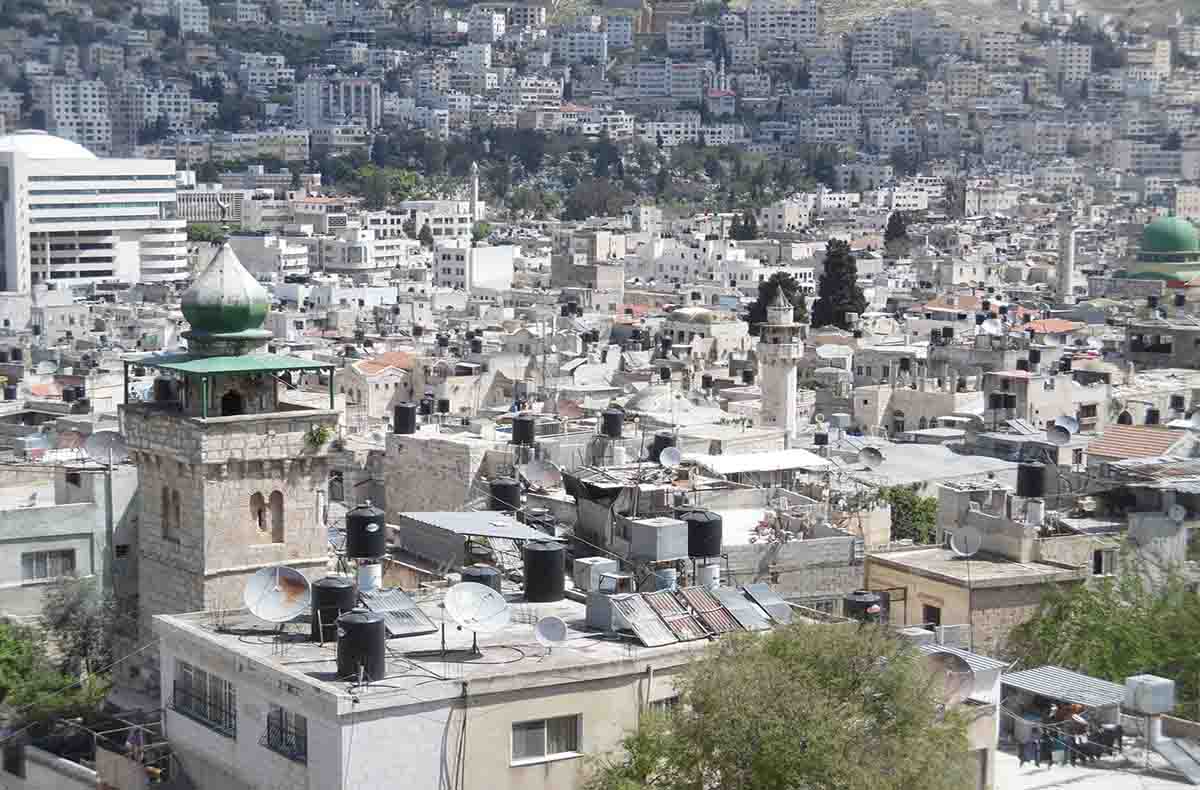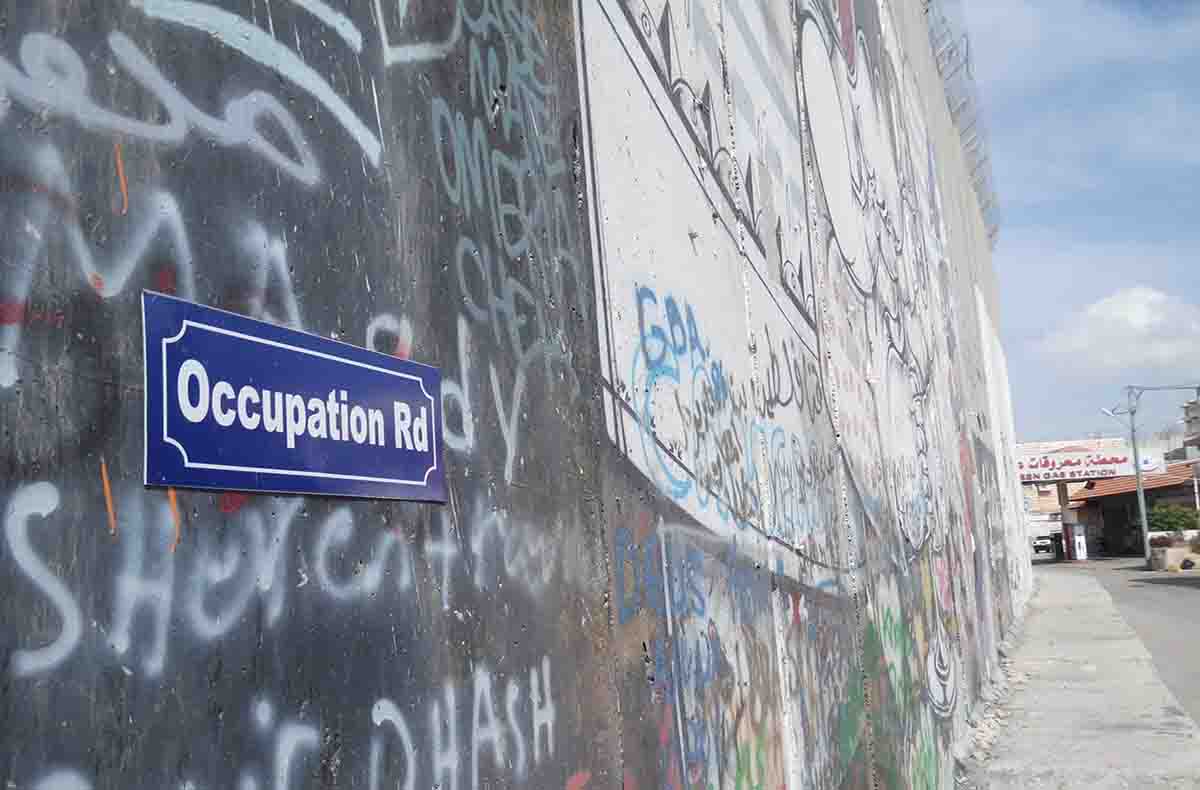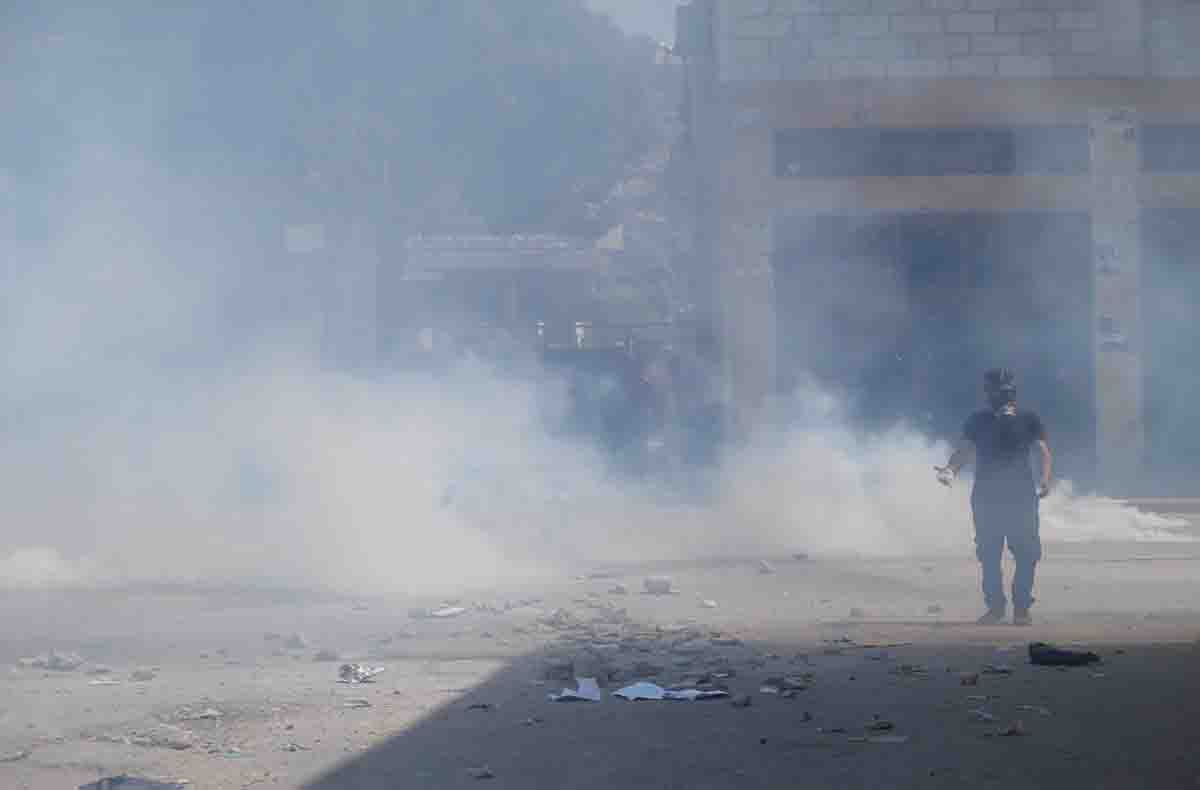
International Women’s Day—and the wider Women’s History Month for those observing it—offers an opportunity to focus on the issues and stories of women that too frequently remain unheard, under-appreciated, or overlooked.
As such, this offered a poetic time to share this first article in a three-part series on how women in Palestine have navigated conflict in their homeland.
This article series is a small gesture towards sharing the narratives and experiences of Palestinian women, a group that is all too frequently marginalized or overlooked entirely by mainstream news coverage. For their safety, I have changed all of the women’s names interviewed throughout the series.
***
When I asked my friend Maya, a Palestinian woman from Nablus, what the Israeli occupation of Palestine meant to her, this was her response:
The Israeli occupation has always been the thief that stole so much from me. As a child, it stole the most important feeling a child could ask for, the feeling of being safe. I could never forget the sleepless, fearful, dark nights I spent with my family listening to heavy shotguns and bombings. No child should face a tank on their way home from school, or wake up to camouflaged soldiers with black paint on their faces walking around their room, looking through their toys and clothes then stealing their computer to find evidence that this child is terrorizing Israel by playing computer games… Growing up, Israel stole the opportunity of a good education—we spent so many days and school semesters at home because it was unsafe to attend school… As teenagers, we think limitlessly, we dream big, but my dreams were always restricted, and living in occupied Palestine always felt like being in a big jail… Israel is the thief that steals the most basic of human rights: the right to move freely, feel safe, feel happy, feel free, feel human.
Since the Nakba in 1948, life has remained fragile in Palestine due to extreme and systematic violence perpetrated by both the Israeli Occupying Forces (IOF) and Israeli colonial settlers. Both these groups regularly commit atrocious acts of violence against Palestinian men, women, and children with impunity, despite the illegality of both the occupation and the endless construction of settlements in the West Bank.
In both Gaza and the West Bank, Israeli politicians have been embarking upon a slow but deliberate policy of ethnic cleansing for years. Indeed, the number of Israeli settlers colonizing the West Bank has now surpassed half a million.
2022 may have been the deadliest year for Palestinians since the second intifada, but this year, already more than thirty Palestinians have been killed in the West Bank alone. Due to recent developments in Israeli politics, things are about to get worse for Palestinians; regardless of whether they are de facto second class citizens of Israel, or citizens of occupied Palestine.
In November 2022, Benjamin Netanyahu defied corruption charges and secured re-election as Israel’s Prime Minister. The political coalition he has since assembled includes his own Likud party alongside five far-right and orthodox religious factions.
Israel, and by extension, Palestine, are now experiencing the most far-right government Israel has ever seen. Perhaps the most worrying development during the formation of Netanyahu’s coalition was the appointment of leader of the Jewish Power party, Ben-Gvir to the position of National Security Minister. In 2007 Ben-Gvir was convicted of racist incitement against Arabs and backing a group which both Israel and the U.S classified as a terrorist organization.
For those living far from Israel and Palesine, these issues can seem like unformed geopolitical constructs. We are told that it is a complex conflict, as if both sides have equal access to resources.
The drawn out nature of the “conflict” is often essentialized as the result of unfathomable, yet equal aggression on both sides—or worse, promoted as Israel’s righteous defense against unyielding Palestinian terrorists. Palestine’s PR machine will never have recourse to enough funding to match Israel’s, which includes hugely powerful lobby groups in countries such as the UK and US.
Human stories and narratives of the human experience are what help us navigate complex and seemingly abstract political phenomena, yet Palestinians are rarely given a chance to speak. Ordinary Palestinian citizens and particularly Palestinian women, much less so.
This is a source of huge frustration and anger for many Palestinian women, including friends of mine I met while working in Nablus from 2016 – 2017. These women are all forging their own paths despite the barriers and violence that Israel throws at them, yet they consistently remain silenced.
Therefore, shortly after Israel elected its new, far-right government I sought out Maya to ask her how this political development was affecting her.
Although Netanyahu’s coalition has not long been in power, Maya already feels a shift in atmosphere. She explained to me that “the Israeli settlements are growing much faster and with this growth and empowerment it gets more dangerous and threatening to move around the West Bank. The new government is encouraging acts of violence against unarmed civilians… it is scary!”
Ben-Gvir has made several proclamations since joining the new Israeli government. A settler himself, in October 2022, Ben-Gvir was filmed encouraging his fellow settlers to shoot any Palestinians who threw stones at them—on Palestinian land.
He has built a political platform upon the foundations of ethno-nationalism in Israel and colonization of the West Bank. He advocates for an expansion of illegal settlements, and has escalated the demolition of Palestinian homes in the West Bank, contributing to ongoing population transfers characteristic of ethnic cleansing.
Furthermore he has presented a plan which would make it easier for Israelis to obtain weapons, while simultaneously pushing for the introduction of the death penalty for any Palestinian accused of killing an Israeli—though not for any Israelis who kill Palestinians. This is symptomatic of the campaign of demonization and dehumanization of Palestinians that the Israeli state has embarked on consistently to obscure Israeli-perpetrated human rights abuses.
In reality, between 2011–2021, there were 3,572 conflict-related Palestinian deaths—including 806 Palestinian children, compared to 198 Israeli deaths—including 14 Israeli children.
Much-peddled rhetoric presenting Palestinians as terrorists or sympathizers has not only obfuscated the human costs of Israel’s occupation of Palestine, it has also completely masculinized Palestinian resistance, erasing the actions and narratives of Palestinian women in the process.
We are accustomed to seeing images of Hamas in media coverage of the “conflict” between Israel and Palestine, or teenaged boys and men throwing stones at Israeli tanks against a background of thick tear gas. This is dangerous on several levels.
First, portraying the situation as an entrenched and complicated conflict disguises a huge power imbalance coupled with desperately unequal resources, detracting from the underlying dynamics of a military occupation being countered by a resistance movement.
Secondly, it is much easier for state machinery to paint a picture of an exclusively male resistance and portray them as terrorists, effectively reframing a nationwide, inclusive, community-based resistance movement as mindless violence.
Third, and correspondingly, this masculinized reframing of Palestinian resistance deliberately dehumanizes Palestinians, obscuring the insidious nature of the harms caused by the occupation, as well as the ways in which Palestinian women also resist.
Uncritical media pays no attention to Palestinian kite festivals, women’s centers, circus classes, marathons campaigning for freedom of movement, rural cooperatives, or women’s determination to raise children with a love of life against the odds.
Maya laments: “I feel like Palestinian women’s voices are not heard enough in this world. Most of the politicians are men, and only the speech of the politicians is televised and transferred to the world. Palestinian women are smart, educated, oriented, and free-willed. They are probably some of the strongest women in this world. The media should focus more on transferring their voices and experiences.”
This three-part series, dedicated to strong, inspirational women like Maya, represents my and New Thinking’s efforts to do precisely that.




